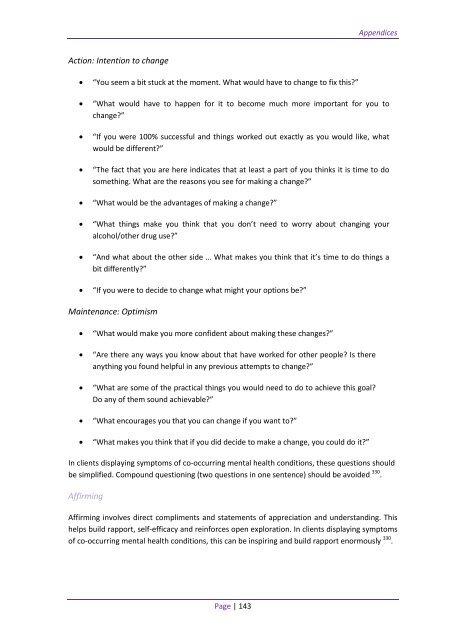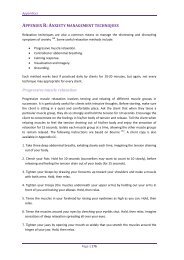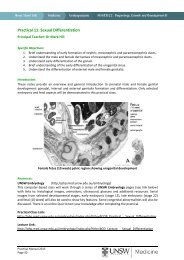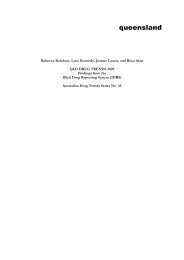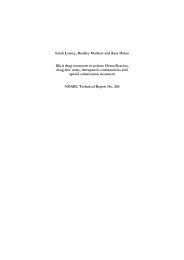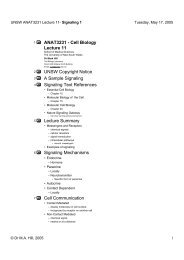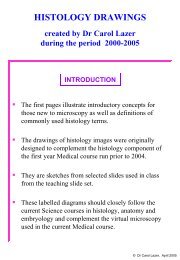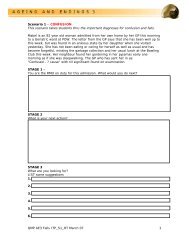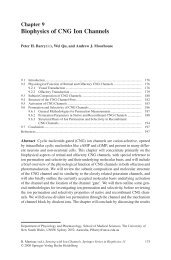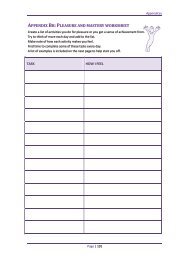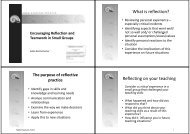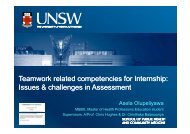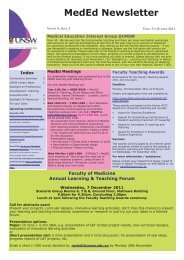appendix d: motivational interviewing - National Drug and Alcohol ...
appendix d: motivational interviewing - National Drug and Alcohol ...
appendix d: motivational interviewing - National Drug and Alcohol ...
You also want an ePaper? Increase the reach of your titles
YUMPU automatically turns print PDFs into web optimized ePapers that Google loves.
Appendices<br />
Action: Intention to change<br />
• “You seem a bit stuck at the moment. What would have to change to fix this?”<br />
• “What would have to happen for it to become much more important for you to<br />
change?”<br />
• “If you were 100% successful <strong>and</strong> things worked out exactly as you would like, what<br />
would be different?”<br />
• “The fact that you are here indicates that at least a part of you thinks it is time to do<br />
something. What are the reasons you see for making a change?”<br />
• “What would be the advantages of making a change?”<br />
• “What things make you think that you don’t need to worry about changing your<br />
alcohol/other drug use?”<br />
• “And what about the other side … What makes you think that it’s time to do things a<br />
bit differently?”<br />
• “If you were to decide to change what might your options be?”<br />
Maintenance: Optimism<br />
• “What would make you more confident about making these changes?”<br />
• “Are there any ways you know about that have worked for other people? Is there<br />
anything you found helpful in any previous attempts to change?”<br />
• “What are some of the practical things you would need to do to achieve this goal?<br />
Do any of them sound achievable?”<br />
• “What encourages you that you can change if you want to?”<br />
• “What makes you think that if you did decide to make a change, you could do it?”<br />
In clients displaying symptoms of co-occurring mental health conditions, these questions should<br />
be simplified. Compound questioning (two questions in one sentence) should be avoided 330 .<br />
Affirming<br />
Affirming involves direct compliments <strong>and</strong> statements of appreciation <strong>and</strong> underst<strong>and</strong>ing. This<br />
helps build rapport, self-efficacy <strong>and</strong> reinforces open exploration. In clients displaying symptoms<br />
of co-occurring mental health conditions, this can be inspiring <strong>and</strong> build rapport enormously 330 .<br />
Page | 143


